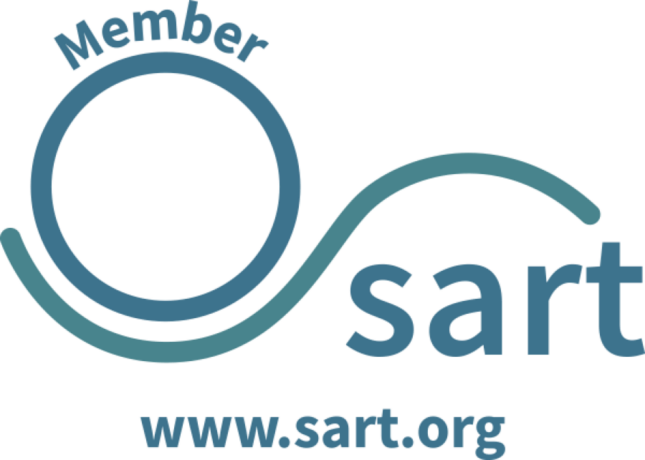Our patients achieve pregnancy at rates consistently higher than the national average.
CURRENT PROGRAM STATS

What is the chance of a live birth doing IVF as a new patient?
Numerator: all live births occurring for patients who performed their first ART (assisted reproduction treatment) procedure at the center in the reporting year. The live birth can occur following any number of cycles performed in the center.
Denominator: all new patients who started at least one IVF case. Each new patient is counted only once regardless of how many cases were started and regardless of how many embryo transfers were performed.

Visit the Society for Assisted Reproductive Technology (SART) website to check out more information regarding success rates.
IVF Outcome Data is freely available. View our SART Clinic Summary Report* for livebirth rate, singleton outcome data as well as outcomes related to frozen embryos, first time IVF cycles, and donor eggs.
With more than 30 years of advanced fertility care, the Washington University Fertility and Reproductive Medicine Center is the region’s trusted source in developing precise fertility treatment options that consistently lead to high success rates. All of our physicians are fellowship-trained, board-certified reproductive endocrinologists. In fact, the Washington University Fertility and Reproductive Medicine Center maintains the longest membership in the St. Louis area with the Society for Assisted Reproductive Technology (SART). SART membership requires we meet the highest standards of quality, safety and patient care.
FAQ
How do you measure success?
IVF success rates can be difficult to compare. In addition to variations in each patient’s age, overall health and infertility factor, treatment approaches may differ from clinic to clinic.
Still, pregnancy rates among women and people with uteruses who are 35 years and younger can serve as a benchmark for comparing the success rates of multiple clinics. We can examine this by looking at the Centers for Disease Control and Prevention (CDC) Assisted Reproductive Technology reports by clinic.
How do age and diagnosis affect IVF success?
Age is still the best predictor of success with IVF. As a result, pregnancy rates are highest among women who are age 37 and below. Pregnancy rates using one’s own eggs decline significantly after 41. Using donor eggs provides a greater chance of success.
Why is live birth rate lower than pregnancy rate?
Pregnancy rate is the percentage of cycles that results in a pregnancy that is seen on ultrasound. About 15% of pregnancies that are seen on ultrasound (aka: “clinical pregnancy”) can result in miscarriage. The most common cause of miscarriage is due to chromosomal abnormalities within the embryo.
How do I interpret a center’s multiple gestation rate?
Our center is committed to keeping the multiple gestation rate down, and our triplet and higher live birth rate is <1%. Our lab has become increasingly adept at using techniques that allow us to pick the embryo that is most likely to result in a live birth. As a result, patients under the age of 37 are eligible for having a single embryo placed to drastically reduce the rate of twins with little significant decrease in success.
What is ICSI and do I need it?
Intracytoplasmic sperm injection (ICSI) is a technique in which the sperm is directly injected into the egg. Evidence supports reserving this technique for families experiencing sperm-related infertility. Some centers perform ICSI on all patients regardless of diagnosis. In general we reserve ICSI for male factor infertility.
Could IVF be right for you?
To learn more about our IVF program, please call to schedule a consultation.
314-286-2400
